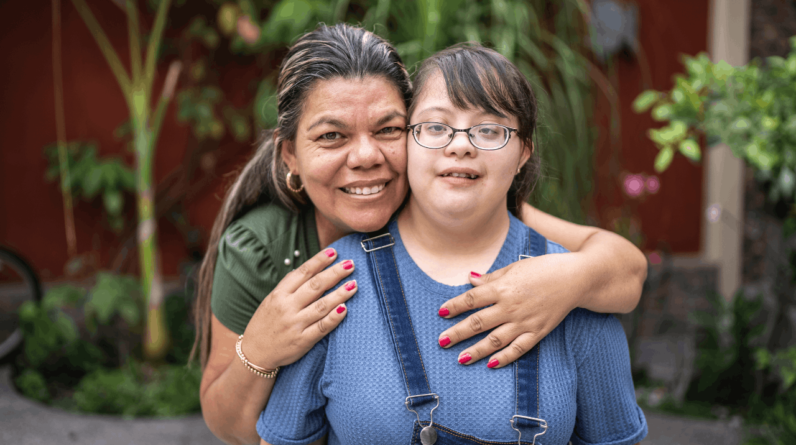
Living with anxiety can be a challenging and often isolating experience.
Anxiety affects millions of people around the world in various ways. It’s not just about feeling nervous or worried; it’s a complex condition that can impact every aspect of life, from relationships and careers to physical health and daily functioning.
Despite its prevalence, anxiety is still often misunderstood and stigmatized, making it difficult for those affected to seek help and find effective coping strategies.
Thankfully, there are a few strategies you can try to help you deal with anxiety, and mindfulness is one of them. Here are a few practical mindfulness exercises to try for yourself as a starting point in combating your own anxiety.
Why Mindfulness?
Mindfulness is the practice of being present and fully engaged in the current moment.
More and more, it’s gained significant attention for its benefits in multiple aspects of our lives. It involves focusing attention on the present moment while calmly acknowledging and accepting your feelings, thoughts, and bodily sensations.
Considering that one of the biggest trademarks for anxiety is the fear of things that could go wrong in the future, mindfulness – and practicing mindfulness exercises – are great tools to pull out to help you both live in and embrace the ‘now’.
The benefits of mindfulness go way beyond managing anxiety.
When practiced consistently, you can see changes in other aspects of your life, such as:
- Self-awareness
- Spiritual growth
- Increased productivity
- Improved interpersonal relationships
- Improved emotional regulation
- Enhanced focus and concentration
4 Mindfulness Exercises To Deal With Anxiety
Leave your phone behind.
Phones have managed to climb up the ladder of the things we can’t do without on a daily basis.
But do you really need to take your phone with you to every room when you’re in the house?
Our phones keep us connected to the very fast-paced digital world, and honestly, sometimes, we can do without staying on top of the latest gossip. Studies have shown that excessive phone positively correlates with anxiety.
Leaving your phone behind allows you to be mindful of the present and enjoy it – rather than trying to be present in a billion digital spaces simultaneously. Don’t let the world pass by while you are glued to your phone.
Practice acceptance.
When we look at how things are going for us, there are some things we wish were different.
In some cases, we are working towards changing those things for the better. While working on personal improvement and growth, acceptance is also important. This doesn’t mean we shouldn’t change our situation; it simply means we accept where we are while working towards getting to where we want to be.
Being accepting is a product of being mindful of the current situation, and it is rooted in embracing reality. It reduces the amount of stress we experience because we accept that there are things we have no control over.
Try silent walking.
Walks are a terrific way to connect with nature and allow our thoughts to flow.
Silent walks mean we can pay attention to the world without distractions. When thoughts are flooding into your head, grab your walking shoes and head out.
Ditch the earphones and listen to the birds. Feel the wind hitting your face and allow yourself to engage with the present moment. Focus on your senses and you will realize there are so many things you could have missed had you brought your phone.
Silent walks allow you to clear your mind by letting your thoughts flow. They allow you to focus on the present, thereby helping you manage thoughts that relate to the potential negative future.
Focus on one thing at a time.
When you look at your to-do list, it is easy to get tempted by the idea of multitasking.
While it might look like a good idea on the surface, multitasking can be exhausting at a mental level as it requires you to shift between tasks constantly. The moving around will make you feel like you have more to do.
Instead, pick one task and give it your all.
Once done, tick it off and move on to the next. This will help you calmly work through your tasks.
The Art of Relaxing Into Emotions: Your Path to Inner Peace→
Mindfulness Can Help With Anxiety
Whether you’re someone who’s been dealing with anxiety for years, have just started to notice symptoms, or are supporting a loved one through their journey, these mindfulness exercises can be of much help.
Mindfulness does not have to be a big exercise to which you dedicate an elaborate amount of time; it can just be about making a few changes to how you do things.
To get the most from mindfulness when dealing with anxiety, consistency is important. You won’t see much change when you don’t take your phone with you everywhere in one day, but this is a baby step that can allow you to experience change.
Be consistent in practicing mindfulness.
You will experience some challenges, and some days will be harder than others, but the important thing is that you get up and try again.
Photo by Gary Barnes







